#poorly drawn jane
Explore tagged Tumblr posts
Text
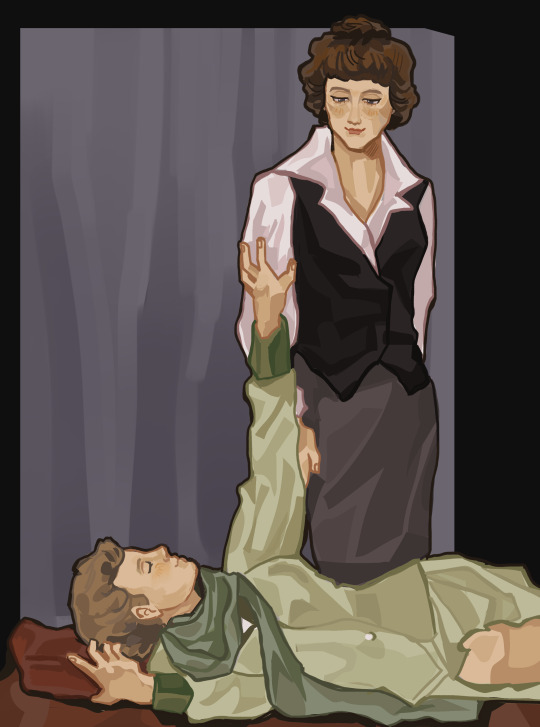
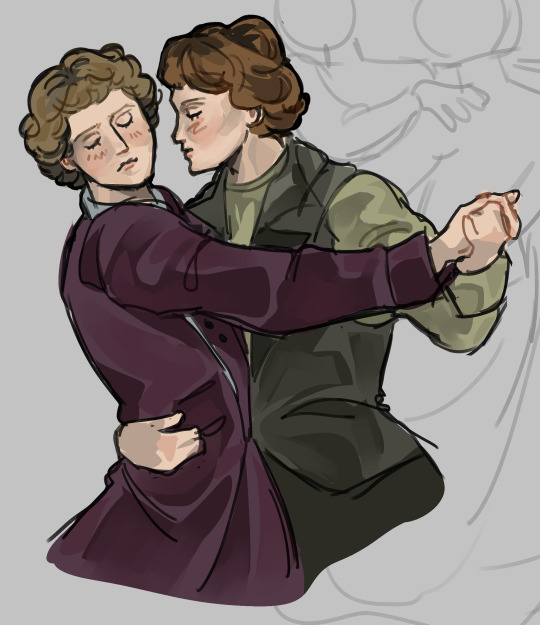
my dearly beloved detective
#once again poorly drawn doodles of a very specific holmes adaptation i cant find any other fanart of#my dearly beloved detective#sherlock holmes#shirley holmes#jane watson#my art#johnlock#<- technically
111 notes
·
View notes
Text
I need to actually do digital shit 😑😑😑

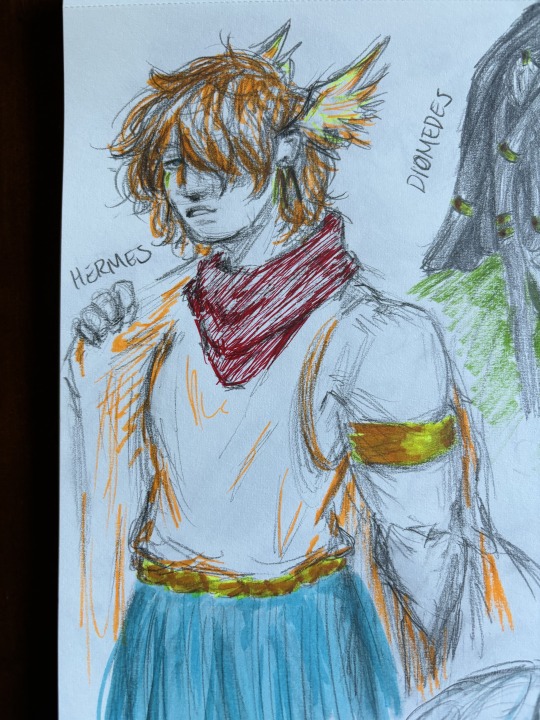



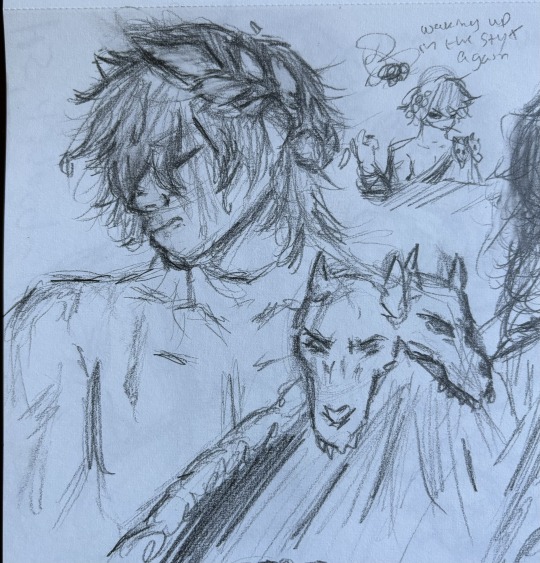



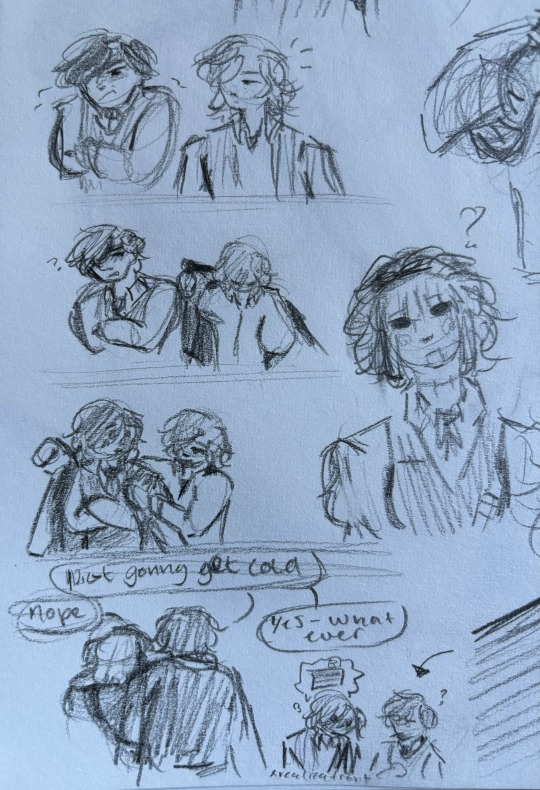
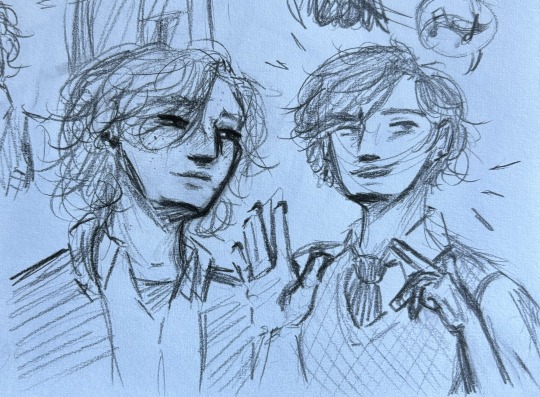
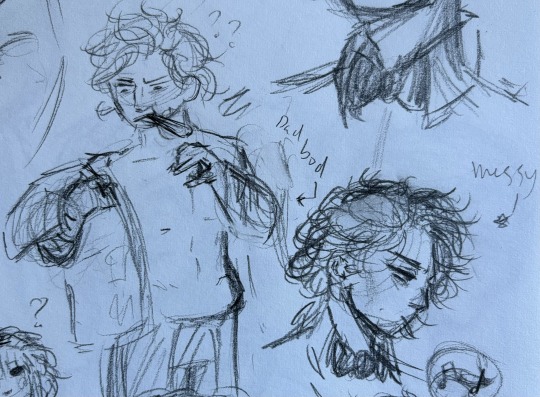
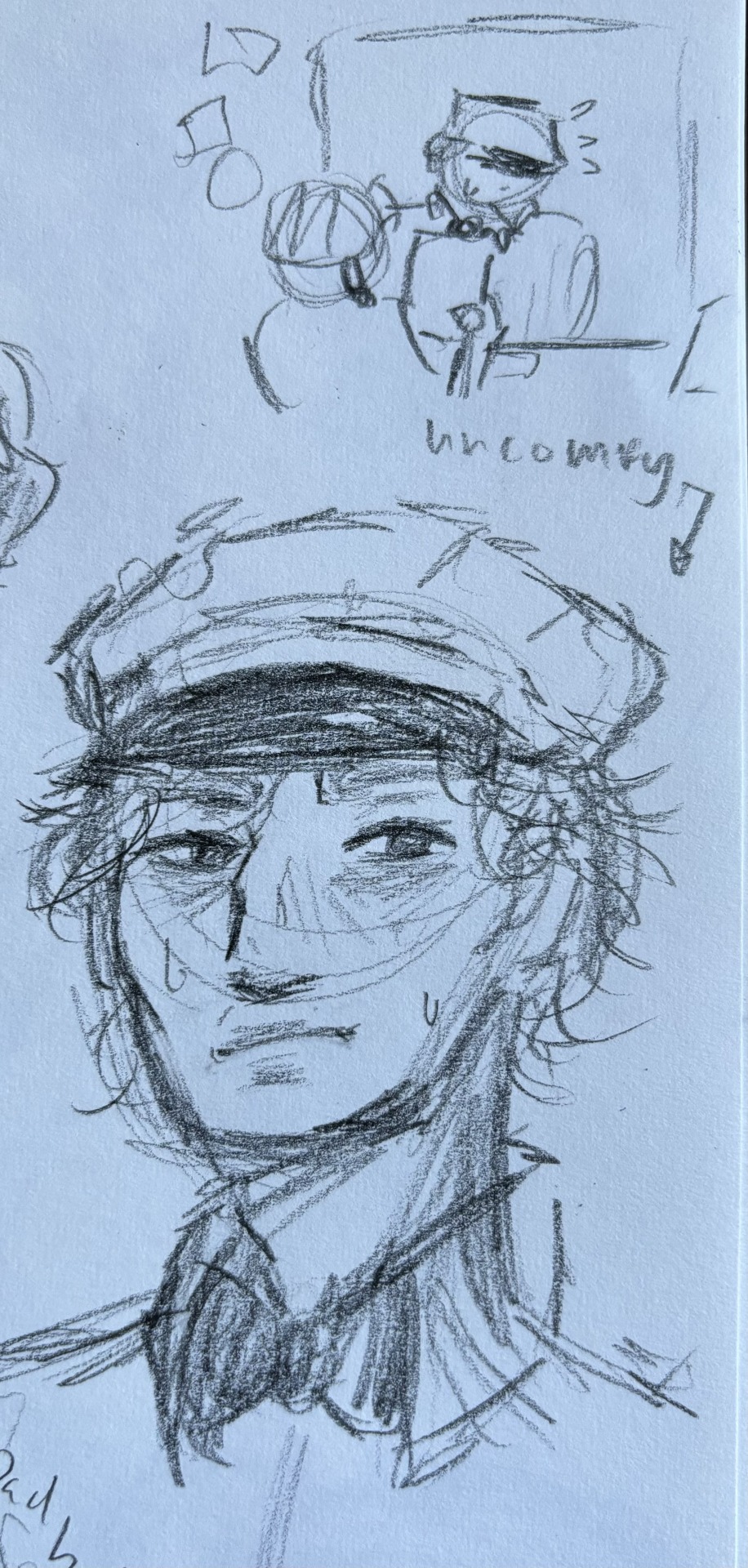

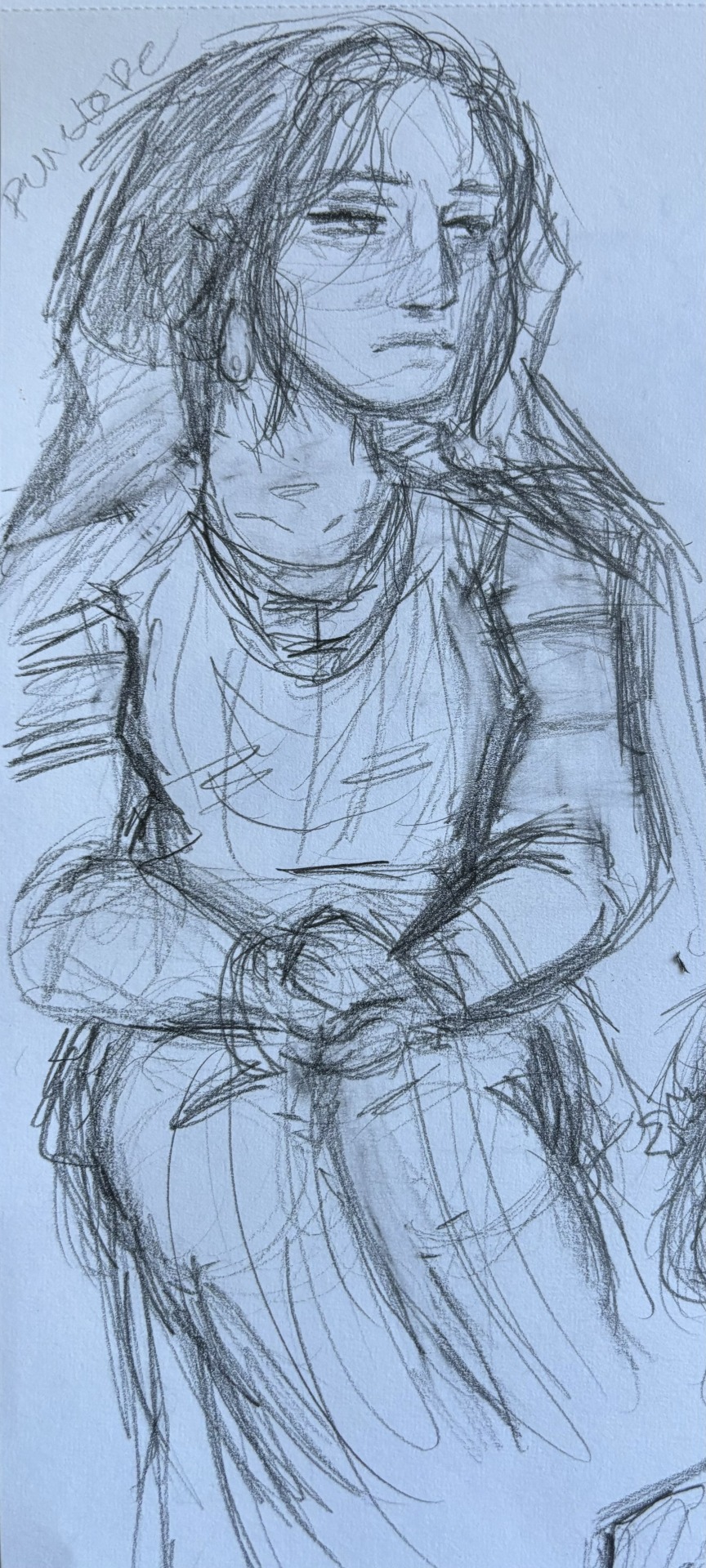
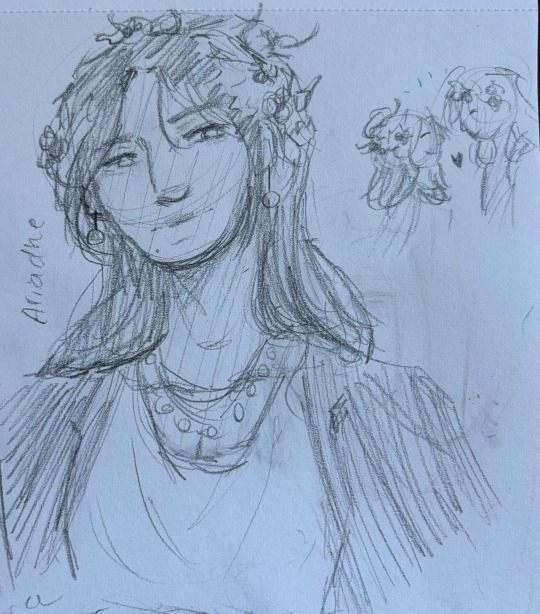
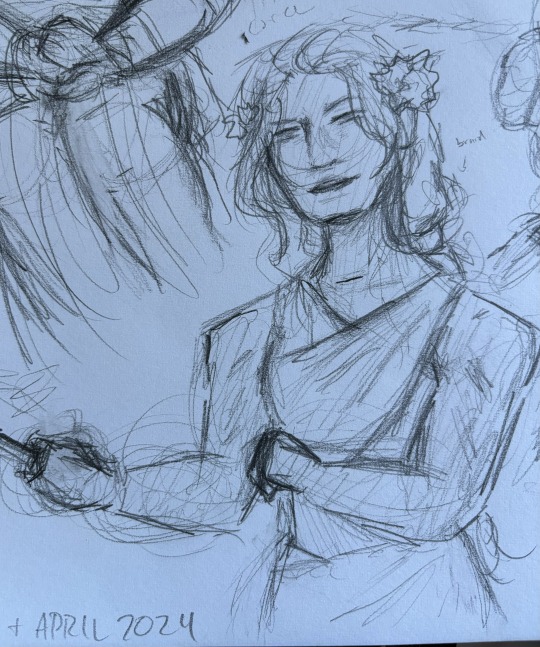
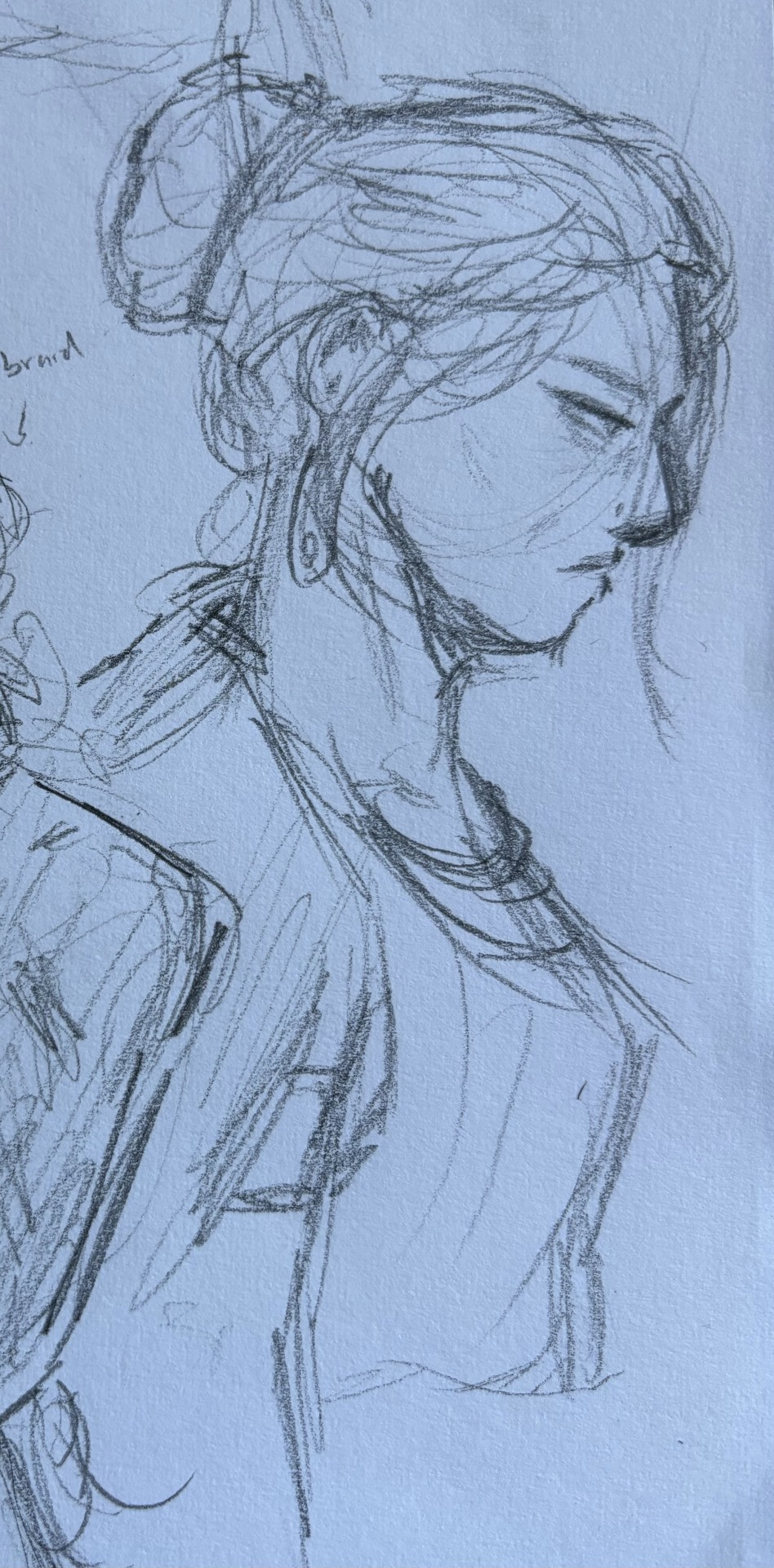
#greek mythology#ride the cyclone#rtc musical#rtc#thats not my neighbor#I caved…..#hermes#diomedes#thanatos#medusa#Poorly drawn though#hades game#zagreus#cassandra of troy#ares#greek gods#greek goddess#athena#odysseus#theyre tiny#but they’re there#noel gruber#mischa bachinski#noel rtc#mischa rtc#jane doe rtc#jane doe ride the cyclone#nischa#milkman#tagamemnon
34 notes
·
View notes
Text


video games . jason todd x reader. ⸼ ࣪ ✿ ❛ they say that the world was built for two. ❜
❪ in which. ❫ after half a decade of years of therapy, tears, and the seemingly never-ending loop of the five stages of grief, you've finally been able to claw your way past the death of your best friend. but one wish on a burning candle on a lonely, rainy night changes everything.
⸼ ࣪ ✿ 𝒘𝒂𝒓𝒏𝒊𝒏𝒈𝒔. mentions of blood, angst, dogshit writing. ⸼ ࣪ ✿ 𝒓𝒆𝒒𝒖𝒆𝒔𝒕𝒆𝒅 𝒃𝒚. @di-lucss. ⸼ ࣪ ✿ 𝒘𝒐𝒓𝒅 𝒄𝒐𝒖𝒏𝒕. 1.7k. ⸼ ࣪ ✿ 𝒕𝒂𝒈𝒔. @di-lucss, @ephemerensis, @dollishmehrayan, @aangelinakii. ⸼ ࣪ ✿ 𝒄𝒂𝒓𝒐𝒍𝒊𝒏𝒆'𝒔 𝒄𝒐𝒓𝒏𝒆𝒓. please make this pull a jason and blow up 🙏🙏 also take note that there's like three different years that jason was born in order for me to determine when he died so i had to spin around in the dark and throw a dart and a random year. said year was 1990 so he died in 2005. reader has a february birthday for plot reasons. don't like it? don't read.


⠀⠀⠀⠀⠀⠀⠀⠀"𝒘ithout music, life would be a blank to me. you're my music. happy sweet sixteen." read the inside of your old, worn copy of jane austen's emma. scrawled in black pen was a little, poorly drawn but albeit sweet doodle of toad and toadette from mario kart sitting on opposite ends of a cake. you'd dubbed him as toad when you were little due to his last name. underneath, in smaller script, "for my favorite parasite. enjoy. love, jason."
your eyes glistened with tears as you looked at the date— february 7th, 2005. when you had turned sixteen, you'd tackled your best friend so hard in a hug that he fell over and landed on the grass. his sixteenth wouldn't come until august, but you already had a book chosen out. what you didn't know is that that same book would still be lodged among your collection of books in four years, because in just over two months, he'd be beaten half to death and let an exploding warehouse finish the job.
jason always liked to go out with a bang.
of course, you hadn't known that. you hadn't known that he'd gone on patrol as batman's sidekick, like he had for years without you knowing. it wasn't until an older gentleman approached you at the funeral and pressed a sharp ended pin shaped like an 'R' into your palm.
you'd renovated after he died. in this economy, you couldn't afford a new apartment other than the one you lived in when you were younger. with your father out of the picture and your mother sent to rehab just barely a year after jason's death, you'd doubled down and redid the entire thing yourself, erasing every trace of your teenaged self from every nook, cranny, and crevice. there were too many memories of jason in the walls— the two broken coat hangers where he'd tried to do a pull-up, the two handprints in red and blue paint on the wall after your first playdate in second grade, and that old guitar with two missing strings that he carved your initials into. gone, gone, gone.
you'd never forgiven him. for lying. for being so reckless. for leaving you. leaving you alone underneath that weeping willow wondering why he hadn't showed.
you brushed your fingers against jason's five year old handwriting, the last trace you had of him. the warm glow of your candle stabbed into your cupcake illuminated the pages. today marked your fourth birthday without jason, four years of that fifty dollar, leather bound copy of pride and prejudice, the one that you spent five months of allowance saving up for. you've never read it, never touched a copy of pride and prejudice again because all you could hear was his voice reading the words.
i wish you were here, jay, you thought to yourself as a puff of air left your lips as you blew out the candle. wisps of smoke curled off the wick and brushed over the first pages of emma. tears brimmed in your eyes as you caught a glimpse of his messy script again. i miss you.
you curled your legs up to your chest and rested your chin on your knees. you let yourself cry, tears trickling down your cheeks.
just then, you heard the window open and your plate beneath your cupcake vibrated as heavy footsteps hit the floor. the groan of a man echoed through your apartment and the sound of something large hitting your wall.
you flinched, your palms pressed against the table. your lights were off and your candle was out, the spark on the wick fading quickly. you inhaled sharply then clamped a hand over your mouth. you stood up and grabbed the quickest weapon you could find— your old, faulty lighter. you walked silently towards the sound.
you heard another rustle and the sound of bottles knocking against each other. the sound was hollow and echoed through your apartment— it was the sound of metal bouncing off tile. your bathroom. your socks quieted your steps as you made your way there. the door is ajar, and you can hear labored breathing slipping through crack in the door. the noise and the bright alabaster light made it look like god himself was speaking to you in tongues.
you nudge the door with your lighter, the harsh light making your vision go fuzzy for a moment before your eyes adjust. your hand goes slack.
"oh my god."
there's blood on your bathtub, your first aid kit is scattered all over the place, and there are muddy boot prints all over your tiled floor a masked head looks up at you and you make dead eye contact with none other than red hood sitting on the edge of your bathtub, a hand stained as red as his suit clamped over his abdomen.
"hey," red hood said, entirely too calm for the fact that a) he had just broken into your home, and b) there was a hole in his stomach.
"hello," you blurted out.
a beat of silence passes, "i'm bleeding," the masked man offered.
"i... can see that," you said. you slowly reached for a bottle of hairspray, your trembling fingers clutching around the bottle as you subtly angled the end of the lighter to the nozzle of the hairspray can.
"please don't set me on fire," red hood said gruffly. you lowered your lighter slowly.
"why are you here?" you asked, voice thick with the disbelief that was still choking you. "how did you even—" you cut yourself off, your eyes shifting nervously to the window, the glass still open. your apartment was on the third floor. he had a stab wound. how had he gotten in?
"i'm really not in the mood for twenty questions," he muttered, sucking in a sharp breath as he shifted his weight.
in reality, jason remembered your exact address from his old life, his old life with you in it, where he would scramble up the rusted ladder and run along the ledges to reach your bathroom window. it was muscle memory for him to go to your apartment, he hadn't even considered that maybe other people lived hear or they'd taken down that old ladder because it was a hazard.
"can you just... do the thing where you help me before i bleed out all over your bathroom?" he asked, and you blinked.
"i... i'm not qualified," you said.
"of course you're not," he grumbled, and you stiffened. red hood motioned to his wound still gushing blood in between his fingers. "look, do i look qualified? no. am i still patching myself up? yes."
"i could care less if you lived or died," you said coldly.
he went silent. you couldn't see, but he bit his cheek and forced down the lump in his throat. he knew that you didn't know that he had died, that he was the one person that you cared about. the singular organism on this planet with a beating heart and flowing blood and breathing lungs that had let those three things shut down and allowed himself to leave you forever.
you cared about jason todd. not red hood. and the only thing for your birthday was for him to stumble through your window like he used to, his clothes smelling like nicotine and his monster energy breath wafting through your tiny apartment. something had climbed through your window that night, but it wasn't your best friend, your jason, your toad. because he was gone and no matter how hard you wished, he wasn't coming back.
"clean up," you quipped, motioning at the mixture of crimson blood and mud caking onto your tile. "grab some food and go be on your merry way."
red hood gave you a thumbs up and you turned on your heel and went back to the kitchen table. your candle had melted. there was wax in your icing.
tears welled up in your eyes. you furiously wiped them away, the sleeve of your sweater burning the puffy skin around your eyes but you didn't care. while you didn't give two shits about red hood, he was still a dangerous individual and was bleeding out in your bathroom. you didn't want him thinking you were weak or see you crying over a copy of emma and potentially digging up things on your personal life.
you put your head down and feels like hours have passed before red hood comes out of the bathroom. you heard the refrigerator open and the sound of containers being rustled around before the door shut and you heard your window slide open.
words danced on the tip of jason's tongue, trapped between his lips and the mask. words like i'm sorry or it's me, jason or any of the thousand inside jokes that had been trapped in his mind and guarded by the lazarus pit that had been sure to engrave it in his brain. his memories of you were still muddled but were all the same, like the layers of a 3d movie or the text on the rosetta stone.
he noticed the cupcake. and the book. that book. emma.
the scent of smoke lingered in the air, slipping between the sweat building up in his hood and the scent of gasoline that clung to his uniform. "happy birthday," he said, one leg hanging out the window.
silence. "how'd you know?" you asked after a moment, your voice hollow.
"you wanted something, and didn't get it," he guessed. jason recognized your flushed cheeks and moodiness when something went wrong. when you were little, you'd throw tantrums.
"i'm not four." you retorted.
"yeah, so live a little," he said. "how often is happiness destroyed by preparation, foolish preparation!"
you'd heard that line before. "wait, did you just—"
the rest of your words came out as a breath as you looked behind you to see red hood gone, the only trace of his presence being the lingering scent of nicotine. your lips parted, hoping the rest of your sentence would spill out, but it didn't.
jane austen wrote that surprises are foolish things. the pleasure is not enhanced, and the inconvenience is often considerable. as you cleaned your floor of red hood's boot prints and had to make an extra grocery run for the amount of food that he'd taken, you might've agreed with it.
but the red annotation on page 182 and the note on your bulletin board reminding you to do something spontaneous said otherwise.

© dulcet-aurora 2025.
#caroline writes ₊ ⊹ ❀#❪ dulcet-aurora ❫ 我 ⸼ ࣪ ✿#jason todd#jason todd x reader#red hood#red hood x reader#red hood x you#jason todd x you#batboys#batfam#dc#dc comics#dc x reader
245 notes
·
View notes
Text
Alright, I’ve now finished a page in my sketchbook with Lilly! Specifically that for Bella!Verse and she’s already become my new favorite character.
So to explain some things: She transfers from Harper’s Hills to the soup kitchen/homeless shelter that Oscar is the head of where she meets Bella again after the months she went missing after her coma. I have a short comic about their reunion that I’m itching to draw, but I have so many ideas already.
Oscar is technically still around but Bella doesn’t meet him until what would be the end of season 4 in this au. He and Lilly have a very sweet relationship with each other: Lilly is aware of Oscar’s drinking problems and does her best to take care of him after and Oscar is like a mentor figure to her.
And of course, Jane/John is very happy to see Lilly again, but his opinions of the nurse sours because of her jealousy.



Lilly goes to the worm house with Bella and gets attacked like Oscar, this time, the worms go to her leg and it’s cut from the knee.
(Poorly drawn worm in her leg below +the aftermath)



The only time Bella meets Oscar would be just outside of Marie’s house when he delivers Lilly’s letter to her.
#malevolent#malevolent podcast#malevolent fanart#john malevolent#bella malevolent#bellaverse#lilly malevolent#oscar malevolent#traditional sketches#artist on tumblr#repost because I messed up before
26 notes
·
View notes
Text
“You consider the matter,” said Elinor, “exactly as a good mind and a sound understanding must consider it; and I dare say you perceive, as well as myself, not only in this, but in many other circumstances, reason enough to be convinced that your marriage must have involved you in many certain troubles and disappointments, in which you would have been poorly supported by an affection, on his side, much less certain. Had you married, you must have been always poor. His expensiveness is acknowledged even by himself, and his whole conduct declares that self-denial is a word hardly understood by him. His demands and your inexperience together, on a small, very small income, must have brought on distresses which would not be the less grievous to you, from having been entirely unknown and unthought of before. Your sense of honour and honesty would have led you, I know, when aware of your situation, to attempt all the economy that would appear to you possible: and, perhaps, as long as your frugality retrenched only on your own comfort, you might have been suffered to practice it, but beyond that—and how little could the utmost of your single management do to stop the ruin which had begun before your marriage? Beyond that, had you endeavoured, however reasonably, to abridge his enjoyments, is it not to be feared, that instead of prevailing on feelings so selfish to consent to it, you would have lessened your own influence on his heart, and made him regret the connection which had involved him in such difficulties?”
Marianne’s lips quivered, and she repeated the word “Selfish?” in a tone that implied—“do you really think him selfish?”
“The whole of his behaviour,” replied Elinor, “from the beginning to the end of the affair, has been grounded on selfishness. It was selfishness which first made him sport with your affections; which afterwards, when his own were engaged, made him delay the confession of it, and which finally carried him from Barton. His own enjoyment, or his own ease, was, in every particular, his ruling principle.”
“It is very true. My happiness never was his object.”
“At present,” continued Elinor, “he regrets what he has done. And why does he regret it?—Because he finds it has not answered towards himself. It has not made him happy. His circumstances are now unembarrassed—he suffers from no evil of that kind; and he thinks only that he has married a woman of a less amiable temper than yourself. But does it follow that had he married you, he would have been happy?—The inconveniences would have been different. He would then have suffered under the pecuniary distresses which, because they are removed, he now reckons as nothing. He would have had a wife of whose temper he could make no complaint, but he would have been always necessitous—always poor; and probably would soon have learned to rank the innumerable comforts of a clear estate and good income as of far more importance, even to domestic happiness, than the mere temper of a wife.”
“I have not a doubt of it,” said Marianne; “and I have nothing to regret—nothing but my own folly.”
“Rather say your mother’s imprudence, my child,” said Mrs. Dashwood; “she must be answerable.”
Marianne would not let her proceed;—and Elinor, satisfied that each felt their own error, wished to avoid any survey of the past that might weaken her sister’s spirits; she, therefore, pursuing the first subject, immediately continued,
“One observation may, I think, be fairly drawn from the whole of the story—that all Willoughby’s difficulties have arisen from the first offence against virtue, in his behaviour to Eliza Williams. That crime has been the origin of every lesser one, and of all his present discontents.”
- Jane Austen, Sense and Sensibility
GO OFF, ELINOR
11 notes
·
View notes
Text
Maura and Frankie headed off to The Dirty Robber well before Jane had finished her mandatory firearm discharge paperwork. She stewed, simmering as she typed out the incident she'd attended. The warning shot she'd fired to get the hostage clear.
So when she walked in, finally, she was even more irate to see Maura without Frankie in attendance. Giovanni was there instead, and even from the door she could see Maura eyeing him with interest. Even after everything, Maura really did have a type. She crossed the room in a couple of quick, easy steps, slid her arm over Maura's shoulders and tilted her face up so she could kiss her.
Then she froze. She hadn't thought this through. Jane acted on impulse more often than not; it was why she'd spent her evening on paperwork. She hadn't quite meant to kiss Maura. Just remind Maura that Giovanni thought they were together because Maura found his personality not as attractive as his body.
But Maura melted against her, her lips open and accepting Jane like she'd anticipated this poorly-thought through plan. Like she'd expected Jane to kiss her and had been waiting all this time. The same way she accepted and went along with any of Jane's impetuous plans, Maura sold it. For a woman that couldn't lie, she was a remarkable kisser. Maura's lips were soft from the lip balm she used - familiar to Jane, since she borrowed it frequently, tasting peach and something uniquely Maura beneath it, her chest tightening even when she borrowed it as her lips moisturised. Maura's familiar hands found Jane's waist and skirted around the scar tissue Maura knew all too well, grasping Jane's waist as she tipped her head further back, allowing Jane better access to her. And Jane found her own hands resting on Maura's cheek, sliding down her jaw until her thumb could brush over a scar a serial killer had left there, Jane's touch impossibly soft in apology for putting her in arm's reach of him.
Jane didn't want to pull away first. She knew Maura had rejection sensitivity, and that was part of it; she didn't want to hurt Maura's feelings. But she also very much didn't want to pull away for her own sake as well. She hadn't - she carefully hadn't - thought about kissing Maura, hadn't wondered what it would be like to have that curvaceous body pressed to hers like this, to have Maura's lips brushing so softly against her own. She was lost in a sea of sensory bliss. Jane was never still, never stood still, never stopped moving, but she'd been pulled to a halt by this thing between them. It wasn't even a proper kiss; it was just a greeting, the same as Nonna had insisted the Rizzoli kids give her. But Maura didn't feel like Jane's Nonna. Not even a little bit.
She couldn't deny it. Not now. The attraction between them had been there all along. She'd tried to ignore it, tried to pull away, but Maura had been so hurt and confused that Jane had been drawn straight back in.
Maura pulled away first, slowly, her eyes closed but slowly opening, blinking up at Jane. She looked worried, and Jane would do anything to keep that look from her face, would do anything to appease her.
So she leaned in and gave a quick, slightly more appropriate kiss for the public place they were frequenting. She smiled, her eyes anxiously scanning Maura's, one hand cradling Maura's head, the other resting on her chest near her collarbone, the bare skin warm against the scar on her palm. She swallowed, and Maura took mercy on her.
"I ordered for you - ah, they saw you come in." Maura took the beer from the bartender and held it out to Jane, who pushed her luck and kissed Maura's temple as she took it, taking a big swig.
"Youse two are so cute together," Giovanni said, a little wistfully. He'd stopped asking, a few years back now, if they were looking for a man. He'd stopped seeing them as available women and started seeing them as a couple, the way a lot of other people seemed to for reasons unfathomable to Jane.
"Thanks," Maura said, tucking herself in against Jane's side. Where she fit perfectly. Where she'd always fitted perfectly. She gave Jane a shy smile, then turned back to her drink, talking about motorbike engines with enthusiasm as Frankie returned from the bathroom and joined in, not even giving Maura and Jane's proximity a second glance.
Jane could feel her heartbeat going crazy, could feel the thrum of longing in her veins. Maura laughed, and there had never been a more beautiful sound or a more beautiful woman or a more beautiful moment. Jane drained her beer and dragged Maura outside, heading for her place on foot as she dragged Maura by the wrist behind her. It wasn't until they entered the vestibule that Maura reclaimed her hand.
"What kind of women do you think we'd like, if we liked women?" Maura asked as she followed Jane up the stairs, and the question felt familiar somehow.
"I'd like you," Jane said, with her condo door finally closed behind them. "I'm sorry. I should have thought that through. I just saw you smiling up at him. The way you smile up at me. And I didn't want - you said you don't like him. And that you don't want me either. But it just seemed - easier."
"Oh." Maura took off her coat, and Jane watched hungrily as more skin was exposed to her gaze. Maura seemed lost in thought. "So you're sorry you kissed me, but kissing me revealed somehow that I would be the kind of woman you'd like if you liked women?" Maura's brow crinkled and it was adorable and she was adorable and Jane turned to the stove, filling her kettle awkwardly to fill the silence.
"I don't like women. I mean, I like women just fine, but not to date. You know what I mean, don't you?" Maura nodded, and Jane set the kettle on the stove. "But I do like you," Jane whispered, turning on the hob. "I mean. I don't need to like more than one woman to like you, do I?"
"I've always been exceptional," Maura mused. "I don't typically find myself attracted to women either, but I would very much like to kiss you again without everyone we know watching us."
"No one is watching us now," Jane pointed out, her fingers running over the scar on her right hand, her teeth worrying her lip. Maura nodded and stepped forward. She tilted Jane's chin with her thumb as she leaned in, and she was twice as soft as Jane remembered, her lips gentle and knowing as they sought Jane's, her tongue smooth and slow, her hands subtle and pervasive.
When the kettle whistled, Jane blinked. She was shoved against the counter, Maura pressed completely against her. Jane's belt was on the floor, her button down was on the lamp, her undershirt was pushed up and her bra was pushed down. Her pants were unzipped and Maura's eyes were a dark brown that Jane had never seen before. She leaned over and turned the stove off, swallowing hard. Maura smiled, a gloating, satisfied smile, before dragging her teeth down Jane's throat.
"I need -" Jane gasped, as Maura's fingers found her, pressing tight circles against her. Jane tried to hold onto that train of thought. But it came crashing down as she did, with only Maura's body pressed against her own to keep her upright on her unsteady legs. "I need to send Giovanni a thank you basket," Jane finished after she'd finished. And Maura laughed, a sweet, delighted chuckle, pressing a kiss against Jane's throat again.
"Peppers," Maura agreed. "But I need you to never think about Giovanni again when I'm touching you."
"Not even if it's about how grateful I am that he's such a weirdo that you don't want to sleep with him? Not even if it's about how grateful I am that you decided that pretending we were dating was the best way to get rid of him? Not even if it's how without him I never would have been brave enough to kiss you?"
"Not even," Maura laughed. "The only person I want you thinking about is me."
"You are all I think about," Jane admitted. She kissed Maura slowly and tenderly. "And I want to do more than just sleep with you. Since that's all you wanted to do with him." Maura was somehow fully dressed and perfectly coiffed. Her lipstick hadn't even smudged as she'd dismantled Jane, and Jane had been too distracted to fumble with the elaborate system of zippers Maura's dress contained. Maura smiled a little sadly, as though she'd heard something that had touched her deeply.
"Are you sure? It's a big change. People will treat us differently if they know we're together." While Maura's concern was sweet, it was misplaced. Everything clicked into place now; the precinct already believed they were dating. As did both of their families. Well. Both of Maura's families, and Jane's as well.
"You're the only thing in my life I've ever been sure about. If I have to marry you to prove it, so be it." Maura stepped back, flustered, and Jane panicked. "I mean, let me prove it." She stepped forward and kissed Maura with all the tender longing she'd kept inside these long years, tugged carefully at concealed zippers. Part of her was aware that Maura deserved this to be happening somewhere more comfortable, on her own terms, in lingerie after a fancy date at a museum or something, with someone far richer and smarter than Jane. But Maura had no complaints, sliding up onto the counter when Jane pushed her there, spreading her legs for Jane, who revelled in the space between them so thoroughly that she didn't notice Maura's nails tight against her skull until she was kissing her way back up to Maura's mouth.
"We were already sleeping together," Maura said, when she could form a sentence again. "But this is much, much better."
97 notes
·
View notes
Text

hi hello I have been so silent. as an apology, have my very poorly drawn Jesse and Jane fanart from school. I love u guys I'm sorry I was just INCREDIBLY unmotivated.... also this is old.... from may....... euagh..
im currently working on a VERY detailed piece of Viktor from Arcane which I will be definitely posting once I'm done, but idk when that'll be tbh
REQUESTS ALWAYS OPEN!!!!!!!
anyway have a nice day u guys and happy gay month 🏳️🌈🏳️🌈❤️
#fanart#jesse pinkman#brba#jane margolis#breaking bad#breaking bad fanart#breaking bad fandom#art#artists on tumblr#sketch#sketching#traditional art#drawing#sketches#idk what other tags to add bro I just want this to be seen#xhylinposts
22 notes
·
View notes
Note
Stupid piece of shit, Twilight literally caused so many myths & misconceptions about Native & Quileute people that the Quileute tribe had to put up an entire site dispelling the shit Stephanie Meyer caused. I literally cannot begin to explain how insanely racist Twilight is as a series with the number of bullshit that happens to not just the Native characters, but other characters of color (but Stephanie Meyer targeted Native Americans specifically). Twilight is an incredibly mediocre and poorly written series created by a fucking Mormon, go read Wuthering Heights, Jane Eyre, or Dracula.
You mean that same Quileute people that has come out with their support for the series, talking about how the series garnered tourism, attention, and economic wealth to their reservation? The same Quileute tribe who credited Twilight for their success in moving their reservation to higher ground and even getting that northern boundary approved after 50 years of no progress?
You literally cannot explain how racist Twilight is a series for a reason, anon. Because if all of it boils down to Meyer changing their legends for a whole-ass fantasy AU, then that’s not good enough, anon. Hell, it provided a great opportunity for the Quileutes to educate tourists on their real-life legends, so it’s a win-win for them.
And of course they aren’t offended by the series’ portrayal of them either. The Quileutes have it good in these books overall: They have wolf superpowers but with none of the downsides of actual bloodlust, need to kill, or sociopathy. In fact, they are framed as protectors in the narrative and their power is deeply rooted in their communal blood ties and their positive relationship with nature. In the books the Quileute legends have them be spirit warriors who had a wolf consent to share his body with one of them. And of course all the bad guys, save a typical internecine power grab, are the pale, evil, sociopathic bloodsuckers.
And that’s not counting the fact that a Native male character—drawn complementary with the male hero—is the secondary love interest of the romantic heroine, and so strong a contender he even has passionate fans arguing for his ship to this very day. And that’s not counting the fact that the author personally loves that character, to the point where she could not bear to end the series with him not getting a love interest/happy ending.
Also, I’m literally an English major a hairsbreadth shy of becoming an actual English teacher at some point. And if you think the likes of Jane Eyre, Wuthering Heights, and freakin’ Dracula don’t have very similar themes or even their own issues even on the writing level, then I’m not the one who must read them, anon. I think a re-reading is in order.
#i come anon#twilight#twilight meta#it’s ‘listen to POC’ until they react in a way that goes against the established narrative#for my part idgaf about what anyone other than what the quileutes think about the portrayal of the native characters in this series#their opinion is the only thing that matters regarding their portrayal#and if they dngaf neither do i#twilight clownery#twilight renaissance
73 notes
·
View notes
Text
Trope chats: Love triangles

The love triangle, a recurring narrative trope, has captured the imagination of readers for centuries, adding layers of complexity to stories of romance and interpersonal relationships. This essay delves into the appeal, evolution, pitfalls, and use of the love triangle as a literary device, exploring its enduring popularity, the challenges it presents, and its impact on both literature and societal perceptions of love.
The love triangle holds a timeless appeal rooted in the exploration of complex emotions, interpersonal dynamics, and the tension between desire and duty. It introduces a dynamic narrative element that can elevate the stakes of a romantic plot, adding intrigue, conflict, and emotional depth. Readers are drawn to the ambiguity and unpredictability inherent in a love triangle, as characters navigate conflicting feelings and moral dilemmas, creating a potent emotional experience.
The love triangle trope has ancient roots, evident in classical literature such as Shakespeare's "Romeo and Juliet" and the Arthurian legends. However, its prominence increased in the 19th century with the rise of romantic literature. The classic novel "Jane Eyre" by Charlotte Brontë exemplifies the early use of the love triangle, introducing the conflict between Jane, Mr. Rochester, and St. John Rivers.
In modern literature, the love triangle has evolved beyond traditional heterosexual relationships to include diverse representations of love and desire. The trope has been adapted to explore LGBTQ+ dynamics, reflecting changing societal attitudes towards love and relationships.
While the love triangle can be a powerful narrative device, it is not without its pitfalls. A poorly executed love triangle may fall into clichés, relying on predictable outcomes and superficial character motivations. Authors must carefully develop the characters involved, ensuring their emotions and choices are authentic to avoid a reductionist portrayal of love and relationships.
Furthermore, the love triangle trope may reinforce certain stereotypes, such as the notion that romantic relationships are inherently competitive or that one's worth is determined by romantic pursuits. Writers must be mindful of perpetuating harmful ideas about possessiveness, entitlement, and the objectification of individuals within the context of a love triangle.
The love triangle serves various literary purposes beyond merely creating romantic tension. It can be a vehicle for character development, allowing protagonists to grapple with their values, priorities, and personal growth. The love triangle may also serve as a thematic exploration of societal expectations, cultural norms, and the complexities of navigating love in different contexts.
The love triangle trope has a profound influence on societal perceptions of love, romance, and relationships. It reflects and shapes cultural attitudes, contributing to popular ideas about passion, fidelity, and the pursuit of happiness. The portrayal of love triangles in literature can impact how individuals perceive their own experiences and navigate the intricacies of romantic relationships.
The love triangle trope remains a captivating and enduring element in literature, offering a lens through which authors explore the multifaceted nature of human emotions and relationships. Its evolution reflects changing societal norms, and when executed thoughtfully, the love triangle can enrich narratives, challenge stereotypes, and prompt readers to reflect on the complexities of love. However, authors must be vigilant to avoid pitfalls that can lead to cliché or reinforce harmful narratives. As literature continues to evolve, the love triangle remains a dynamic tool for writers to probe the depths of the human heart and offer readers a nuanced exploration of love in all its complexities.
#writeblr#writers of tumblr#writing#bookish#booklr#fantasy books#creative writing#book blog#ya fantasy books#ya books#writing community#teen writer#writing blog#writers#tumblr writers#writblr#writer problems#writerblr#writers community#writers corner#writers on tumblr#writerscommunity#writerslife#spotify wrapped#book#new books#book review#book quotes#books#books and reading
7 notes
·
View notes
Text
so i watched the fnaf movie and i have some thoughts. mostly not good but certainly some thoughts!
(FNAF MOVIE SPOILERS. DO NOT READ BELOW IF YOU DO NOT WANT THEM)
unpopular opinion but the fnaf movie was frustrating to me because i didn’t feel like it followed the lore at All. like i appreciated all the references (kicked my feet and scream whispered in the theater to my mom when i saw the racing game print on the shirt of the guy who dies in the kitchen) but like the overarching plot made no sense to me. here are some rambling points. long post incoming
Plot Fails IMO
why did afton kidnap garrett (who is nonexistent in the games afaik) from a Campground? this is completely unrelated to the typical afton kidnappings and seems like a major stretch
why is vanessa his (afton’s) daughter? this feels like they tried to smash steel wool lore and scott cawthon lore together and failed worse than steel wool failed at making security breach have a point
why do we care about the mike schmidt namedrop if it isn’t an alias for afton’s son like in the games? why does afton recognize the last name and specifically get mike to work the job, then say he didn’t want mike to even get involved. my brother in christ YOU INVOLVED HIM
yet another piece of media where afton randomly dies. except Different. i don’t understand what is going on here this isn’t how it happened it’s a literal rewriting of the canon lore
the drawings thing was also very odd. the whole point of the animatronics coming to kill you originally in 1 and 2 was BECAUSE they knew an adult had killed them and they thought mike was william. there was no special drawing mind control. felt once again like a steel wool lore transplant, extending control over vanny (vanessa) to the animatronics
Springtrap For Fanservice™️. god im so tired of this stop jamming him in places he wasn’t in to start with
when would this take place even? i estimated somewhere between 1 and 3, clearly fazbear’s shut down but it’s obviously not to the point of fnaf 3 yet? why do they need a guard then? idk
abby schmidt? who
Other Odd Stuff
there was a weird split between horrifying fates and drawn out gore and people being cut in half in impossible ways and….. cutting the tension in half by building a table fort and tickling a child to death. really? every single climatic buildup in this movie felt like it was followed by comedy
my mother pointed out watching this movie that it continues a trope “autistic child provides key help through special connection with main plot problem, and then is immediately cured”. i have to say i kind of agree because why else call her mentally ill at the beginning? go out of the way to show her being by herself drawing (which is FINE! it’s OKAY!!) and then socializing with other kids after the ghost deal is over?
mike schmidt dream plotline. why
what was the point of aunt jane???
vanessa throwing the pills away was probably illegal in multiple ways lmao
sigh… as a long term fnaf fan i really wanted to like this movie but it came off as a whole lot of fanservice and diluting the story for mainstream while blending the new owner’s lore in poorly. i liked fnaf when it ended at fnaf 6!!!!!!!!!! aaaaaaahhhaggagah!!!!!!
if you want to contradict anything i said here (or if ur another big fan and you know smth i said is wrong lol) absolutely feel free i love lore and talking about it and if you love lore like me come chat and talk abt this w me!!!
tldr don’t get me wrong i enjoyed it for the references and the little details, matpat and cory and the living tombstone made me giggle, but i really thought they messed up the plot a Lot..
might add more in reblogs as i think of it
yeah anyways ill probably make another post rambling about all the references and stuff lol
15 notes
·
View notes
Text
More OC drawings because I am obsessing!!! (minor blood warning but it is very poorly drawn and hard to see so I don’t really think you need to worry)
(Featuring lyrics from The Ballad of Jane Doe because they just fit really well)


Neither of these really came out how I wanted but they get the point across. I guess.
Oh yeah that’s Matthew and Xavier btw (left to right)
#try and figure out what happened just based on the drawings I’ve posted so far I dare you#you won’t get it right#blood mention#my ocs#oc art#traditonal art#art#artists on tumblr
7 notes
·
View notes
Text
Day 4 of reading Beatles RPF
On our way back home by Kathleenishereagain || 4/56
Taking a break from recording a few podfics to read some Beatles fanfiction.
I've got two things to report with this chapter, and the I promise, I'll get out of your hair.
Number One: I'm realizing, very quickly, that I'm far too American for their location. Or, to be more clear, I have zero idea where the hell anything is. This hasn't been a problem, but this chapter made a point to mention a few locations. Such as Liverpool, where Paul's dad lives and where he went back to visit him.
(Brief side note, but I did find myself tearing up, just a little, at this. Maybe just at the notion itself, of going back and sitting in a long dead parent's kitchen, eating breakfast they made for you. That some things never really change, that they will always be your parent, even if, as Paul is, you're a time-traveling 77 year old.)
But, locations. There's a bit where Paul says he's in Liverpool, John says he's in London, and I, American, just sort of nodded along with zero idea what any of those names meant. I have no idea what the distance between those places is, but I should probably find out. Actually, having some kind of map might be useful for future chapters. I'll remember to bookmark one, so that I can reference any other locations they go to.
The second thing that stood out to me in this chapter was the contrast between Paul's ex-girlfriend (current girlfriend in 1965, but ex to him? Time travel shenanigans.), Jane, and John. The way he reacts to seeing both of them is so vastly different, despite by his own admission, both of them not being people he was on the best of terms with when he saw them last. (mentions Jane being his ex-fiance as well, so I imagine that went poorly. and obviously there's the fight with John that broke up their friendship for a long while.) He doesn't want to speak to Jane, can't bring himself to even say that he loves her back over a phone call, but upon even hearing John's name, he "perks up". It's a small thing, but as someone who has a hard time getting drawn into romantic narratives of any kind (and this is the Beatles yaoi page, so we'll be getting some kind of romance, god willing,) I enjoyed picking up on it.
(Oh! One last thing! There was a meeting at the beginning of the chapter, glossed over because Paul has more important things to worry about, but it briefly mentioned a "future movie". There's a Beatles movie??? The amount I don't know about these people...)
6 notes
·
View notes
Text
Comics Read 07/01-15/2023
A little over a year ago I did a post about reading two comic book biographies of Artemisia Gentileschi back-to-back. I wrote some lines about how the inclusion of them in my collection helps makes the act of collecting semi-autobiographical. Consider this a sequel to that post.
Over the two weeks I am writing about I read Glass Town written and drawn by Isabel Greenberg and The Brontës Infernal Angria written by Craig Hurd-McKenney and art by Rick Geary. Different takes on the same subject, how the Brontë children had a shared alternate universe which they all wrote stories about. I have owned a copy ofThe Juvenilia of Jane Austen and Charlotte Brontë from when I was a child, but I never read it. I probably should. The names of Angria and Gondal were familiar from reading about the Brontës. But because of not actually reading the Juvenilia, I first encountered Glass Town by name in Die, where it was treated as a proto-multi-player role playing game. Which, seems fair enough. Die wasn’t much interested in the subject of their writings, so this is all new to me.
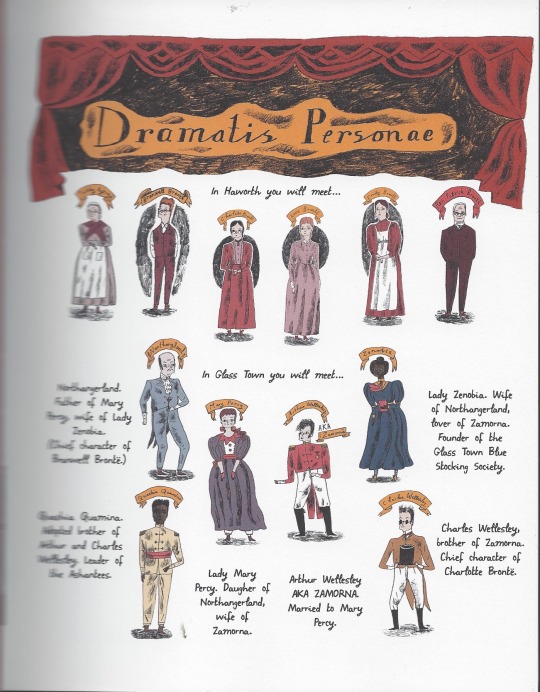
Greenberg’s art in Glass Town is crude in the same way ND Stevenson’s and Gus Allen art work is. If anything it’s more childlike and inconsistent. I don’t love it, but I like how the lines work the limited pallet with a lot of dark, cool reds. It hints at the early industrial feel of their time period as well as the harsh climate of their surroundings.
The narrative starts in the aftermath of the the eldest Brontë sisters, Elizabeth and Maria, deaths. The creation of Glass Town is an escape from the trauma of their final illnesses at a poorly kept boarding school.
Charlotte narrates her tale of Glass Town, to a minor character from her stories who appears as her imaginary friend. They talk through the plot she worked on, which as presented here seems more related to Wuthering Heights than Charlotte’s actual novels. The story includes how while the children started sharing Glass Town, they split with Charlotte and Bramwell writing about Angria while Emily and Anne created Gondor. (Less of Emily and Anne’s writing on Gondal survives to the modern day than Charlotte’s work on Angria, hence why less of it is included in either of these accounts.) Probably because of this shared fantasy world with her brother, Charlotte is shocked by his decent into alcoholism while Emily catches early warning signs. It’s a rumination on the building of escapist fantasy in the face of tragedy and the creation of art. I don’t think it entirely works, but it makes me want to get back to reading the Brontë’s and writing about them.
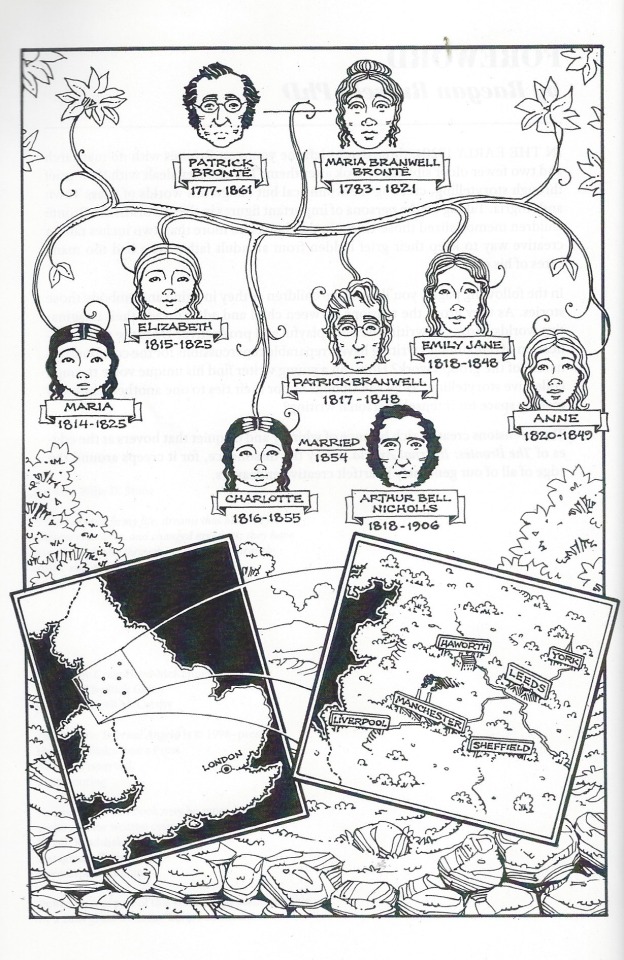
Infernal Angria takes the shared fantasy world and creates an actual portal fantasy. The Brontës literally go between worlds and get used in political machinations in an alternate world’s monarchy. I hated it. The text is something of an apologia for Bramwell for being such a failure. He didn’t really fail, he was manipulated by much more mature people from a world he loved. Also it takes the “artists don’t die, they live through their art” to the extreme of the Brontës didn’t all die at shockingly young ages, they relocated to the other side of a portal. It’s silly and also unclear. It shouldn’t be both. The end had the author talking about his long love of the Brontës as well as a suggested reading list. Everyone in a while you find someone who has some shared enthusiasms but seem to take it in a direction that rubs you wrong.
At first glance, I would think that Geary’s art style is more my type than Greenberg's. But eventually I hated it because the shading was made with a crosshatching that got too easily confused with paterns used for fabrics or wood grains. It’s the shorter of these two books and the one that felt more like a chore to read.
The contrasting treatments of the the worlds of Angria/Glass Town is pretty interesting. The character in both have essentially the same back story, but as presented in Infernal Angria I didn’t feel like the narrative came off as a rough draft of Wuthering Heights. Glass Town treats the alternate world as a reflection on contemporary colonialism, while Infernal Angria approaches it as a pastiche of Medieval fantasy. It makes me wish I had read the source material even more.
Despite finding these books lacking, there will be more comic book takes on the Brontës in my reading future.
#comics#comic books#what i'm reading#Glass Town#The Brontës Infernal Angria#The Brontës#charlotte bronte#Bramwell Brontë#emily bronte#Anne Bronte#Isabel Greenberg#Craig Hurd-McKenney#Rick Geary
3 notes
·
View notes
Note
If you’re still up to requests, perhaps Rich and Jane taking turns holding baby John?
OMG YESSSS!!!! Sorry this is so poorly drawn.. it’s just a silly doodle also I gave up on drawing babies LOL

Rich would be EXTREMELY nervous and scared.. like he’s afraid he’d drop him on accident or that John would explode if he held him the wrong way LMAOOOOOO. Jane on the other hand would be very calm and relaxed. She knows what she’s doing!
#jane has watched a lot of babies before and is just naturally a calm person so#asks for me#hope u like this ^_^#doodlez#richard#jane
2 notes
·
View notes
Text
Books I've read in 2025
Desert of the Heart - so unexpectedly real and substantial (and unerotic) it can't even be called pulp fiction. Stark distinction between the miserable tracing of deathdick justifications: the infertile woman who wants a child and the raped child who wants a mother having sex with each other (eventually, I guess- I'm only halfway through.) This clear theoretical structure for homosexuality, which I hope is not drawn as literally from Jane Rule's life as the age gap itself, stands in as a substitute for any real chemistry or connection between the characters. But in literary strength it stands apart from that central conceit of the plot which connects it to a romance fiction genre it seems related to by name alone. Beloved - Had to give it back to the library before I could get very far Recitatif, Song of Solomon, The Bluest Eye, A Mercy - Well. She's a genius. I ripped through Song of Solomon at a pace that was almost uncomfortable. The striking vividness of her language is like a lucid dream. You can literally see the light glistening off skin. You can taste the sense of life endemic to each character. The ending gets a bit dubious and cheesey, with a sense of water rushing open out of a narrow channel. It gave me insights into things tangential to the point of the story (just part of its realism) which have stuck with me, like an understanding of how dirty my own cussing must sound to those not inured to its etymological roots. A Mercy - relatively short and such a quick bite to read I actually forgot what happens in it. It works well in the bouquet of Toni Morrison works, covering themes and perspectives, relationships, realities not touched upon. The Bluest Eye- Unflinching. I like when women use the searing pain of their secret experience to shock and force a violent recognition. Recitatif - cannot recommend this enough to enough people. Basic fundamental touchstone of life & reality. Absolutely touched by and crazy about it. Stoner McTavish #5 or something: The inherent racism of a white person who doesn't know any native people and openly admits to having just googled some stuff about the Hopi and Navajo writing a book where a white person goes into a native culture and saves the day is not entirely offset by the main white character's constant neurotic bechdel-like moral guilt panic about her fully created role in the story. Despite the weird taste this inevitably leaves in the mouth, I found the characters actually pretty human and enjoyable. It made me cry a lot, made me laugh a lot, and genuinely felt like a friend wherever I carried it.
Wanderground - I've spent years hearing about Wanderground and its influence. My dreams of what it could be surpassed what it was. After Desert of the Heart and a lot of Toni Morrison, this book was like a slap in the face from a five year old. For being the single most influential work of an incredible age of lesbian separatist achievement, it is basically a series of poorly thought-through daydreams between two-dimensional characters speaking in an unfamiliar code both pointlessly difficult to understand and only one step removed from regular language. Probably 50% of this book is descriptions of polite litany. None of the juicy possibilities of the world proposed seem to be explored at all. It feels like a sloppily conceived play between festival lesbians wearing haphazard costumes and basically acting as themselves. Not convincing. [also the descriptive writing was entry level dogshit and the grasp of larger literary concepts nonexistent.]
A ?? Plan - This book from the Pattern Language series which describes the planning process for Oregon University campus (coincidentally a sort of lesbian hotbed), used too much maledefault language to be enjoyable. It had the typical useless pretension architects always have. I'll keep carrying it around in my bag probably as it gets dirtier and dirtier, because an intellectual book dense with good ideas is a nice little snack when you're out and about and have some free time. Three Guineas - picked up this Virginia Woolf staple in a weird bookstore and liked the bite and rage of the introduction.
0 notes
Text
done with guns, germs, steel now and, hmm... feel like the criticisms of diamond and his thesis probably overstated and tbh a fair number of them do seem to be motivated by covert racism, but i do also see where some of his critics are coming from.
like... i'm not well read in most of the fields of study he is drawing from, but there were imho a number of... if not outright inaccuracies, definitely dichotomies drawn in the linguistics portion of the book that i felt were misleading or examples I thought were poorly considered. the one i remember most readily is him using english as an example for how languages usually have more phonemes than alphabetic symbols - which I cannot wholly contest without further research, but most linguists could tell you english is quite unusual insofar as languages go for its number of phonemically distinct vowels and is very much not a language you would want to use as a typical example for how languages and their alphabets interact. so i imagine people more into the nitty gritty of some of the other fields he is summarising work from are likewise finding these types of small irritations and disagreement on some of his flashpoints.
and i do feel he often loses sense of scale moving between different parts of his book. like... i think he builds a very holistic and, lbr, socially important argument that the geographical landscape and barriers to animal and plant domestication and the spread of information and technology were the deciding factors in favouring eurasians in social conflict and colonial struggles with other peoples, in contrast to culture, behaviour, and, most importantly, genetic variation between ethnic groups. and on a macroscale that works, but at the same time I feel he does describe what sound to me like bottlenecks on a microscale where it's hard to imagine culture did not play a role. for instance, he fails to sell me on the fact that aboriginal Austrailians failing to adopt bows and arrows through the inhabited archipelago between them and Papua New Guinea could not have been culturally determined, when he invokes an image of a very limited group of communities with specific cultures moving through this one point of contact (and when he also admits women were moving between these communities because they were being abducted and taken as wives by neighbouring communities, but were it seems not considered meaningful vectors for the transfer of cultural information and technology). not that aboriginal australians having bows and arrows could have been sufficient to chase out european invaders with firearms and standing armies but... I guess a more important one is that he admits that cultural changes in how european colonialists approached indiginous peoples changed so much in the space of only a few centuries that it effectively led to different outcomes for Papua New Guinea's sovreignty than that of indiginous peoples in the Americas. so the line between where things are large scale enough to dismiss cultural factors as a random variable in determining current geopolitical landscape, versus where they are small scale enough we cannot dismiss them as such, is poorly construed imho even if I find myself impressed by his work and thesis overall. so I would be interested in reading at least some of what his critics have to say, I think.
will have to wait tho. for now i'm considering listening to either clash of kings or jane eyre next. haven't quite made up my mind.
#sorry this post is like 'i miss college' but also 'i hated college'#also some of the way he talks about ethnicity and race does irk me even if i don't think it's really coming from the wrong place#he could imho have drawn more attention to the phenotypic variation that exists between members of the same ethnic group#and how it exceeds variation between ethnic groups#status update#anyhow i also got my hands on invitation to a banquet and am also wondering if i can get an audiobook for genji monogatari
1 note
·
View note